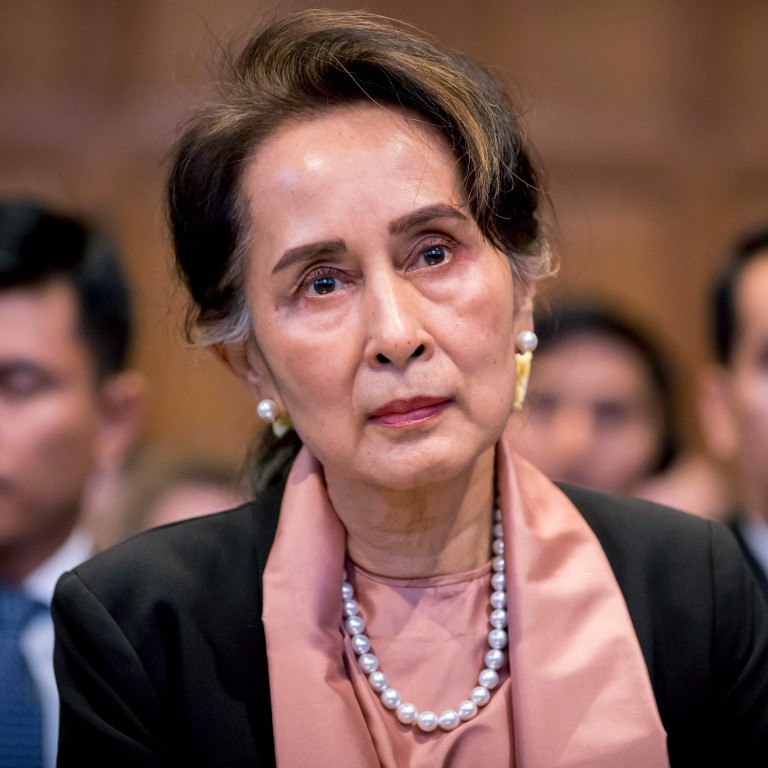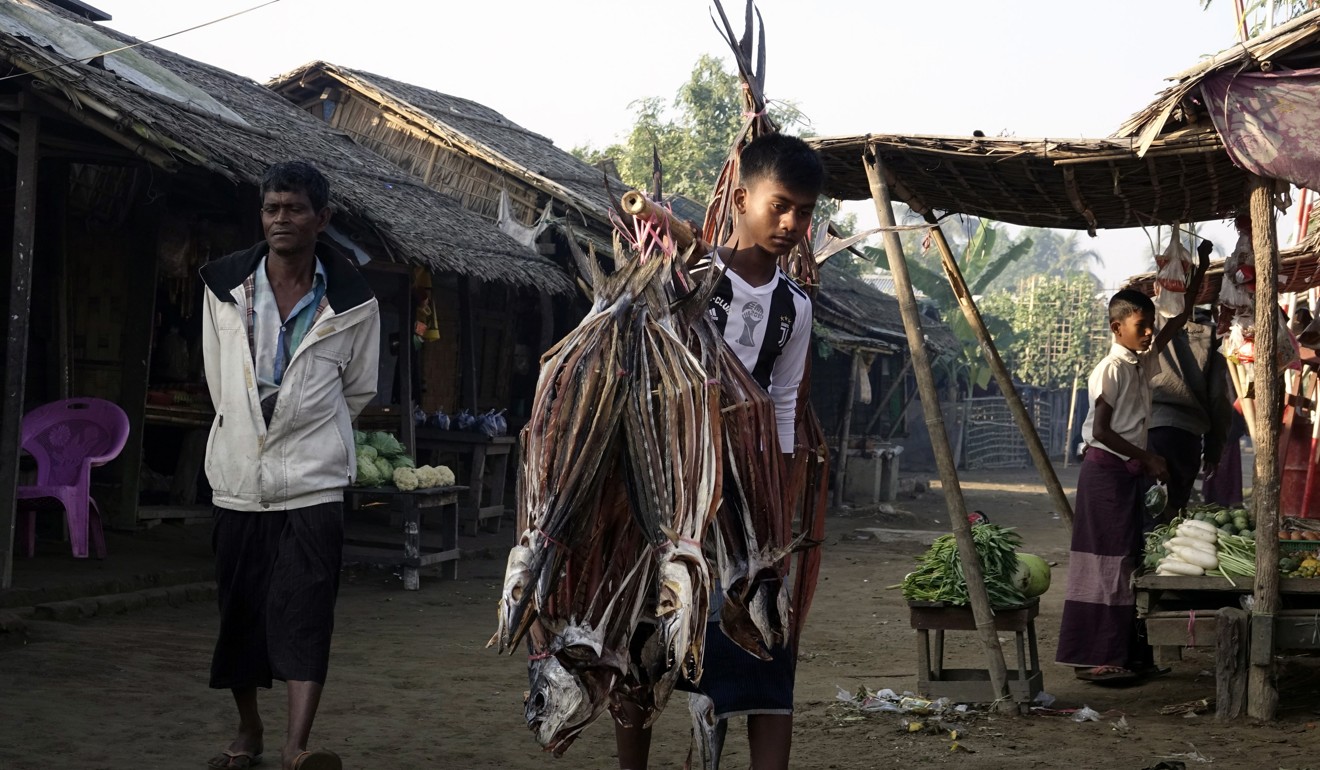
International court orders Myanmar to create laws to protect Rohingya Muslims
- Ruling comes as Aung San Suu Kyi releases editorial saying that Rohingya refugees have exaggerated abuses against them
- The international court’s rulings are final and without appeal, but it has no real way of enforcing them
The court’s president, Judge Abdulqawi Ahmed Yusuf, said the ICJ was “of the opinion that the Rohingya in Myanmar remain extremely vulnerable”.
More than 730,000 Rohingya fled Myanmar after a military-led crackdown in 2017, and were forced into squalid camps across the border in Bangladesh. United Nations investigators concluded that the military campaign had been executed with “genocidal intent”.

Mostly Muslim Gambia launched a lawsuit in November at the UN’s highest body for disputes between states, accusing Myanmar of genocide against Rohingya in violation of a 1948 convention.
At public hearings last month, lawyers for Myanmar’s accusers used maps, satellite images and graphic photos to detail what they call a campaign of murder, rape and destruction amounting to genocide perpetrated by Myanmar’s military.
Suu Kyi: it’s ‘misleading’ to label Myanmar’s treatment of Rohingya as genocide
Suu Kyi, who as Myanmar’s state counsellor heads the government, was awarded the 1991 Nobel Peace Prize for championing democracy and human rights under Myanmar’s then-ruling junta.
Thursday’s ruling dealt only with Gambia’s request for so-called preliminary measures, the equivalent of a restraining order for states. It gave no indication of the court’s final decision, which could take years to reach.
Moments before the court in The Hague began reading its ruling, the Financial Times published an article by Suu Kyi in which she said war crimes may have been committed against Rohingya Muslims but that refugees had exaggerated the abuses against them.
Human rights groups have condemned Myanmar based on unproven statements without the due process of criminal investigation.
She said Myanmar was the victim of “unsubstantiated narratives” by human rights groups and UN investigators and the country could itself punish perpetrators through domestic mechanisms.
“The international justice system may not yet be equipped to filter out misleading information before shadows of incrimination are cast over entire nations and governments,” she said. “Human rights groups have condemned Myanmar based on unproven statements without the due process of criminal investigation.”
During a week of hearings last month, Suu Kyi asked the judges to drop the case.

The international court’s rulings are final and without appeal, but it has no real way of enforcing them.
More than 100 Myanmar civil society groups published a statement saying they hoped international justice efforts would “bring forth the truth” and end impunity.
“Political and military policies have always been imposed with violent force and intimidation upon the people of Myanmar, systematically and institutionally, on the basis of their political and religious beliefs and ethnic identities and continue until the present,” the statement said.
“We understand very clearly that the ICJ case against Myanmar is directed towards those responsible for using political power and military might, and not to the people of Myanmar.”
China reaches out to Myanmar as the ‘friendly giant in the neighbourhood’
Buddhist-majority Myanmar has long considered the Rohingya to be “Bengalis” from Bangladesh even though their families have lived in the country for generations. Nearly all have been denied citizenship since 1982, effectively rendering them stateless. They are also denied freedom of movement and other basic rights.
In August 2017, Myanmar’s military launched what it called a clearance campaign in northern Rakhine state in response to an attack by a Rohingya insurgent group.

The campaign forced more than 700,000 Rohingya to flee to neighbouring Bangladesh and led to accusations that security forces committed mass rapes, killings and burned thousands of homes.
Suu Kyi told world court judges in December that the exodus was a tragic consequence of the military’s response to “coordinated and comprehensive armed attacks” by Rohingya insurgents.
She urged judges to drop the genocide case and allow Myanmar’s military justice system to deal with any abuses.


